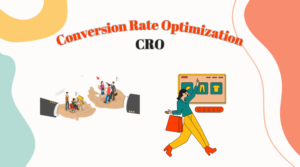As they grow, nearly all businesses are eventually introduced to SEO and the idea that rising through the ranks on a search results page will benefit them.
Of course, this is correct.
There are plenty of reasons why a better ranking helps businesses grow—increased visibility, consumer trust, among others—yet there are still persistent misconceptions about SEO, what it is, and how it works.
Are New York SEO long Island services provide expert knowledge within the industry from our employees at NewSunSEO.
Our SEO team can help manage your company website and promote growth across search engines to increase the size of your target audience.
Contact us today to ask any questions about our services. We also provide a free SEO analysis for any interested customers.
8 Misconceptions about SEO
Before you can make SEO work for your business, it’s critical to understand what it is—and what it isn’t.
- Rankings Are Everything
Rising up the rankings on the search results page is what SEO is all about, right?
Yes and no. Seeing your listing climb the rankings is not only satisfying, but it will get you seen by more people and probably result in more clicks.
But none of that is worth much if those visitors don’t convert to leads. After all, that’s the end goal of any marketing campaign.
While rankings are important, they are not the only way to measure success.
Ranking for your most important keywords is a good place to start, but you must also pay attention to which keywords result in the most leads and sales.
- Keywords and Links are the Most Important Factors in SEO
This is partly true, but it’s also a somewhat dated perspective.
While search engines do still use keywords to determine rankings, they have also become much more sophisticated, and packing a page full of keywords amidst otherwise useless content won’t fool them the way it once did.
In fact, in their quest to deliver the best experience to their users, search engines have developed ways to detect this type of manipulation and will likely as not punish, rather than reward, it.
In summary, spamming isn’t going to work with search engines anymore.
Good quality content is still the most surefire way to both rank on the search results page and foster customer loyalty.
A well-written page, article, or post will use keywords organically while still providing something useful to visitors.
Even if you could deceive Google through keyword packing, people who click on your page won’t stay long if they don’t find something of value.
- Google Penalties are a Serious Threat
Many people worry that they’ll be slapped with a penalty for the smallest infraction, possibly something they don’t even realize they did wrong, but this isn’t true.
Google takes penalties seriously and only imposes them for serious infractions; you won’t accidentally commit a penalty-worthy offense.
Rankings ebb and flow, but this natural fluctuation is rarely the result of penalties.
If you are not setting out to game the system, you have nothing to worry about.
Are SEO Long Island services follow Google Webmaster Guidelines to look at best practices and avoid any potential opportunities of being penalized by not following policies.
- SEO is Too Complex
Starting an SEO campaign can seem daunting, and there are some technical components to SEO success.
But even if you aren’t technically inclined, you can learn the basics of SEO through reading articles on reputable sites.
You just have to commit to it, and in a day or so, you’ll have a functional understanding of the process.
- SEO is Too Easy
On the other hand, SEO does take some commitment.
You can learn enough to get started in a day or two, but like any form or marketing, trial and error is crucial.
You have to monitor what’s working, what isn’t, and make adjustments.
There is no SEO formula that works across the board, and search engines often alter algorithms.
User behavior changes as well, so you need to keep apprised of how the industry is evolving in order to continue seeing success.
- SEO is a Scam
In many people’s minds, SEO is a way to trick or deceive Google into boosting your page to the top of the results.
In truth, SEO professionals are analyzing both the algorithms and user trends to discover what users are looking for and how to satisfy their intent.
The most effective, long-term SEO tactics are genuine website improvements and quality content that is relevant to users—Google and other search engines pick up on this and point their users to sites they feel will benefit them.
There are some shady SEO techniques, but they rarely work as well as simply creating a positive experience for visitors.
- SEO is Too Expensive
Even if you are paying for a premium SEO service, you have to consider ROI (return on investment).
Using SEO to make it easier for people to find your website and company will have a tremendous impact on the growth of your business.
Keep in mind that people who don’t discover your business can never become customers. SEO is a very worthwhile investment in the future of your business.
- SEO Takes a Long Time to Make a Difference
There are a lot of variables involved, but depending on the competition for certain keywords, articles can rank within minutes.
One important step is to get indexed by Google so that crawlers can follow the links leading to your site.
Pages and their content are indexed based on criteria set by the search engines, and this contributes to how well your pages will rank.
While some SEO techniques are designed to encourage long-term results, competent SEO professionals can get you ranking very quickly.
Improving SEO
Instead of falling prey to these misconceptions about SEO, focus on ways to improve your rankings by keeping up to date with the latest industry evolution’s and user trends.
There is a lot of competition in almost every industry, and rising above your competition will take not only hard work and knowledge of best practices, but some creativity.
You want to make yourself as visible as you can, so branch out to as many relevant platforms as possible.
More than ever, user experience will make the difference between SEO failure and success.
In May of 2021, Google plans to debut an algorithm that will measure page experience, and what it discovers will have a major influence on rank.
Good user experience means clean design, good page load speed, and useful, relevant content.
Some of the more technical aspect of SEO might be complex, but giving your customers the value that keeps them coming back doesn’t have to be.




